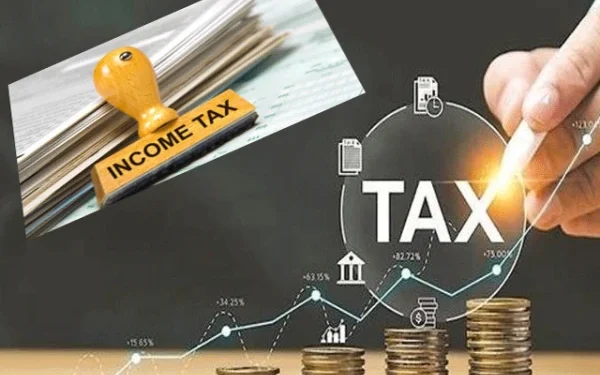Islamabad: The salaried class in Pakistan has been disproportionately burdened with taxes, having paid a staggering Rs331 billion in income tax over the first eight months of the current fiscal year. This amount is 1,350 percent higher than the tax contribution of the government’s preferred category—retailers—yet it remains insufficient for securing relief from the International Monetary Fund (IMF).
Sharp Increase in Tax Contribution by Salaried Individuals
The income tax paid by salaried individuals during the July-February period of the fiscal year 2024-25 has increased by Rs120 billion, or 56 percent, compared to the same period of the previous fiscal year when the total contribution stood at Rs211 billion. The government had initially set a target of collecting an additional Rs75 billion from the salaried class for the entire fiscal year. However, this target has already been surpassed by Rs120 billion, with four months still remaining until the end of the financial year.
In the previous fiscal year, the salaried class paid Rs368 billion in taxes. Despite this significant contribution, government officials did not raise the issue of reducing the tax burden on salaried individuals during their negotiations with the IMF, nor did they propose any relief measures for this segment of the population.
FBR’s Response and Future Tax Review
When approached for comments, Federal Board of Revenue (FBR) spokesperson Dr. Najeeb Memon stated that the government intends to review the tax structure for the salaried class in the upcoming budget. However, there have been no discussions regarding this matter with the IMF, which remains focused on achieving fiscal targets.
Retailers and Traders Contribute Minimal Taxes
While the salaried class continues to bear an increasing tax burden, the contribution from retailers remains significantly lower. Over the same eight-month period, retailers—many of whom operate in the informal economy—paid only Rs23 billion in withholding income tax.
Furthermore, wholesalers and distributors contributed Rs16 billion in withholding tax, with nearly half of them remaining unregistered. To encourage traders to enter the formal tax system, the government imposed a 2.5 percent withholding tax on them, expecting it would prompt them to register. Although this measure led to an additional Rs12 billion in tax collection, it failed to achieve its primary objective of expanding the tax net.
Failure of the Government’s Trader Tax Scheme
The government’s initiative to bring 10 million traders into the tax net has proven unsuccessful. Sources within the FBR revealed that despite the scheme’s ambitious goals, it faced significant resistance from large traders who dissuaded smaller traders from registering. This resistance resulted in the scheme’s failure to expand beyond 43 cities, ultimately rendering the plan ineffective.
According to FBR sources, officials admitted to the IMF that collecting taxes from traders and jewelers remains a major challenge. The scheme, which was expected to generate Rs50 billion in revenue, has so far failed to meet even a fraction of its target. The structural flaws in the program and lack of enforcement mechanisms have contributed to its poor performance.
Taxation on Non-Corporate and Corporate Sector Employees
Non-corporate sector employees have contributed Rs141 billion in income tax during the current fiscal year, reflecting an increase of Rs42 billion or 43 percent compared to last year. Meanwhile, corporate sector employees have paid Rs101 billion in taxes, marking a rise of Rs37 billion or 56 percent.
Despite these significant contributions from salaried individuals, the government has continued to prioritize tax relief for sectors such as real estate.
IMF Rejection of Tax Relief for the Real Estate Sector
While the government attempted to negotiate with the IMF to reduce the tax burden on the real estate sector, the request was denied. This means that real estate investors and developers will continue to be taxed at existing rates, with no exemptions or reductions granted.
Government’s Plans and Future Outlook
Finance Minister Muhammad Aurangzeb has reportedly instructed the FBR to explore options for providing some relief to the salaried class. However, without formal discussions with the IMF, there is little hope that any meaningful change will be implemented in the short term.
The continued tax burden on the salaried class raises concerns about fairness and economic equity. With inflation and cost-of-living pressures mounting, salaried employees—who already contribute the lion’s share of income tax revenue—are increasingly feeling the strain. The failure to expand the tax net to other sectors only exacerbates the problem, placing an unfair burden on a specific segment of the population.
As the government prepares the budget for the upcoming fiscal year, it remains to be seen whether policymakers will address these disparities or continue to rely on salaried individuals to meet revenue targets. Without a more balanced tax structure, economic inequality may continue to widen, further fueling dissatisfaction among the middle class and working professionals.

























